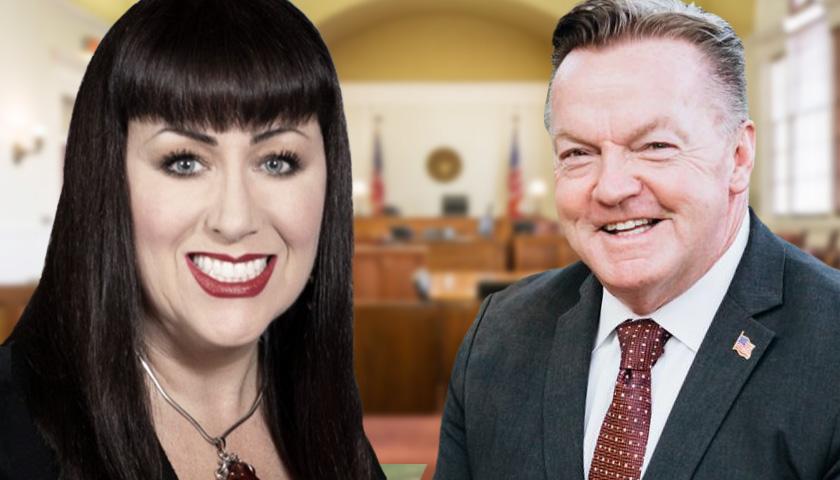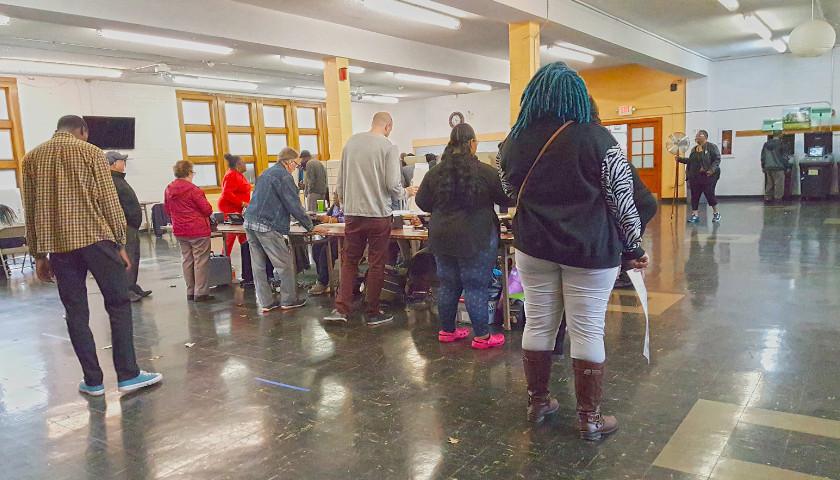The Arizona Legislature is considering two bills to dismantle the State Bar of Arizona.
Senate Bill (SB) 1435, sponsored by State Representative Justine Wadsack (R-Tucson) and passed the Senate 16-13 on February 27, would make the Bar voluntary and move the licensing and regulation of attorneys back under the Arizona Supreme Court. Currently, lawyers cannot practice law in Arizona unless they are a member of the Bar. While Arizona is a right-to-work state, lawsuits attempting to stop it from acting like a mandatory union have failed due to judges ruling against them. More than half of the states have mandatory bars; the rest are voluntary.
Article V of the Arizona Constitution states in part, “No person shall be denied the opportunity to obtain or retain employment because of non-membership in a labor organization.”
The Bar is not a governmental agency but is delegated authority from the Arizona Supreme Court to regulate attorneys. Since it is ostensibly private, it is not subject to transparency and public records requests. SB 1435 now goes to the House for consideration.
SB 1092, sponsored by State Representative Anthony Kern (R-Glendale), who has championed many previous Bar bills, passed the Senate 16-12 and is also in the House. It prohibits the Bar and the Arizona Supreme Court from disciplining or revoking attorney licenses “for bringing good faith, nonfrivolous claims based on law and fact to court.”
This legislative proposal was drafted to protect election attorneys bringing lawsuits over election discrepancies. The 65 Project and other progressive activists and officials have filed Bar complaints against attorneys representing Kari Lake in her election challenge.
The Bar often uses multiple vague, broad rules to discipline attorneys. Rule 8.4 of the Arizona Rules of Professional Conduct states that an attorney cannot engage in conduct involving “dishonesty, fraud, deceit or misrepresentation” or “prejudicial to the administration of justice.” It is also applied to conduct by attorneys outside of the practice of law.
Another rule often used to discipline attorneys is Rule 3.1, which states that attorneys shall not bring lawsuits that lack merit. It says in part, “The action is not in good faith … if the client desires to have the action taken primarily for the purpose of harassing or maliciously injuring a person, and is frivolous if the lawyer is unable either to make a nonfrivolous argument on the merits of the action taken or a good faith and nonfrivolous argument for an extension, modification or reversal of existing law.”
A minor bill sponsored by Kern, SB 1046, eliminates the requirement that arbitrators must be attorneys. It passed the Senate 16-12 and was transmitted to the House.
Mo Hernandez, an Arizona lawyer who’s been long interested in mandatory bar reform and in reclaiming lawyers’ constitutional rights, told The Arizona Sun Times, “Contrary to what’s been too often said about past legislative efforts to reclaim lawyers’ free speech and freedom of association rights, Sen. Justine Wadsack’s bill is nonpartisan. The First Amendment and the Bill of Rights apply to everyone, including lawyers. And this is why bills like Sen. Wadsack’s to reform the State Bar of Arizona have time and again found bipartisan support from Arizona’s lawyers.”
Opponents of election integrity filed 17 bar complaints against former Attorney General Mark Brnovich after Democratic Attorney General Kris Mayes issued a press release last month denouncing Brnovich for not agreeing with two of his staffers that there were mostly no problems with the 2020 election. Several other conservative election attorneys in Arizona are under investigation by the Bar or have been disciplined. The 65 Project filed complaints against Lake’s attorneys Alan Dershowitz, Jesse Kibort, Joseph Pull, and Andrew Parker, who are licensed to practice law in Minnesota, and Kurt Olsen, who is licensed in Maryland.
Michael Teter, the managing director of The 65 Project, told NBC News last month, “We saw hundreds of election deniers across the country run and lose, and yet very few of them were bringing lawsuits in the aftermath of their losses. I think that’s partly attributable to our efforts in 2020.”
Lake said she had difficulty finding attorneys to represent her due to the risk to their careers. She explained to Turning Point USA President Charlie Kirk during an interview that “the left is threatening them with the ability to make a living and practice law. … It got to a point where I’ll take anybody. I’ll take Better Call Saul to come on in here.”
Bob Brickman, an election and regulatory attorney in Phoenix, told The Sun Times the Bar has been weaponized by the left. “Since the 2016 election cycle, many believe the bar complaint process has been transformed away from its intended purpose,” he said. “It feels like the Democratic Party has weaponized the filing of complaints against attorneys representing Republican and conservative clients, as a form of LAWFARE; hijacking what was intended to be a process for an attorney’s disgruntled clients. Absent the Bar issuing guidance on who has standing to file complaints, the only recourse to stopping this State-sponsored intimidation of attorneys not to represent certain types of cases or clients, is through the Legislature scaling back the Bar’s powers,” suggested Brickman.
– – –
Rachel Alexander is a reporter at The Arizona Sun Times and The Star News Network. Follow Rachel on Twitter. Email tips to [email protected].
Photo “Justine Wadsack” by AZ Senator Justine Wadsack. Photo “Anthony Kern” by Anthony Kern. Background Photo “Courtroom” by Carol M. Highsmith.





